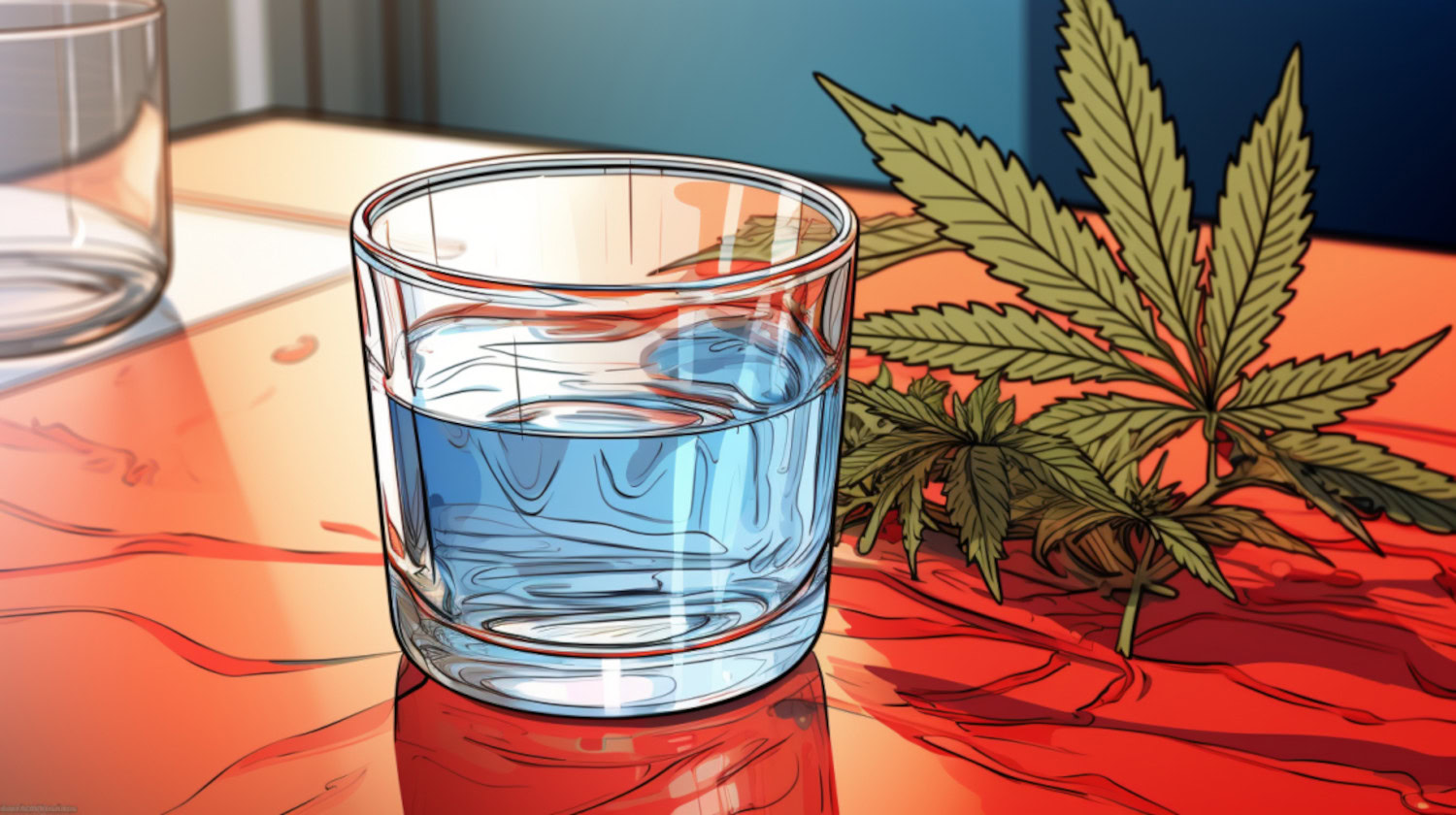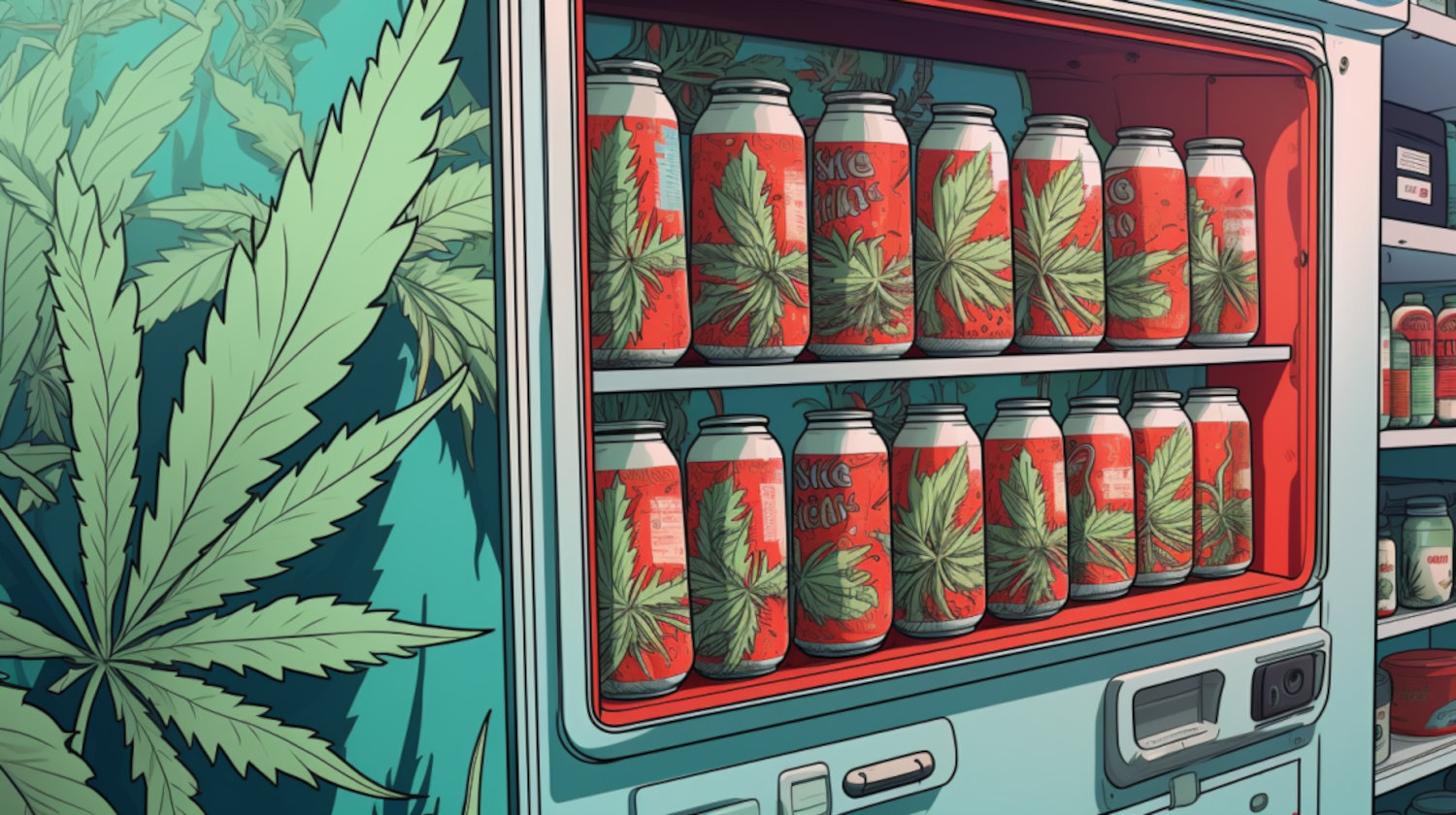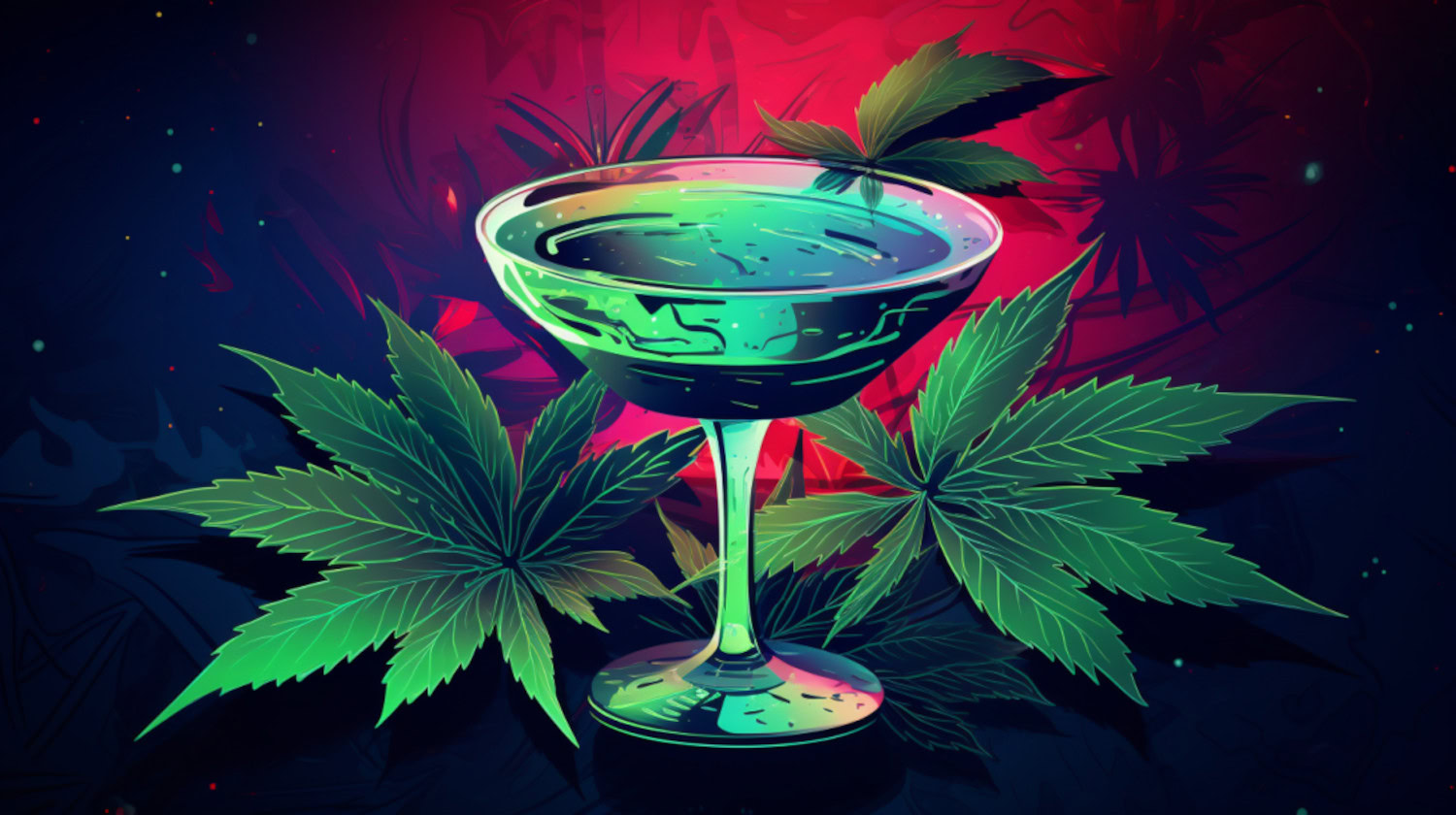Cannabis is among the most versatile plants on the planet, giving consumers unparalleled product diversity across a wide range of consumption methods. One of the latest segments of the market to sprout in recent years is CBD water.
Globally, the CBD water market is stirring up a lot of interest, with this fairly new sector expected to generate $4.92 billion by 2031.
But what exactly is water soluble CBD, and when is it the best option?
What is Water Soluble CBD?
Water soluble CBD is what the name implies – CBD that is soluble in water and other liquids. CBD is a Class II drug of the Biopharmaceutics Classification System (BCS), depicting its poor water-solubility and porousness. The more soluble a substance is, the better its ability to absorb into the bloodstream, hence why more products are exploring CBD drinks.
Emulsion and nanoemulsion (AKA “Nano CBD”) are the two main production processes used to make CBD water-soluble. Once the cannabinoid is emulsified, food and drink producers can mix the cannabinoid with various ingredients in accurate, predictable doses.
Nanosuspension formation is preferred for maximizing CBD's solubility, permeability, and bioavailability. One study involving CBD-infused nanoemulsion found that the bioavailability was 17 times that of non-nanoemulsified CBD.1
Many CBD water manufacturers that use Cyclodextrins and their derivatives are widely used in liquid formulations to enhance the solubility of fatty lipids like cannabinoids, such as CBD. Cyclodextrins are starch-derived cyclic carbohydrates that are sometimes used to create edibles, too.
How is Water Soluble CBD Made?

Unlike other types of CBD extract, water-soluble CBD (and similar THC powder products) is dissolvable in water. It is entirely possible to make CBD drinks with full-spectrum extract that contains up to 0.3% THC. However, some manufacturers opt for broad-spectrum as a THC-free alternative to full-spectrum. Others prefer isolate, comprised of 99.9% pure CBD. Hemp water differs from CBD water in that it likely only contains hemp seed oil rather than CBD unless otherwise specified, and a certificate of analysis (COA) is provided to verify.
Conventional CBD oils, both store-bought and homemade, are somewhat stubborn in terms of how the body absorbs them. As a hydrophobic molecule, CBD has a low affinity for water-based liquids unless it undergoes some tweaking in the laboratory beforehand. Cannabinoid emulsification grants food and drink producers the liberty of presenting consumers with palatable, accurately dosed products with predictable effect onset.
Water soluble CBD can be made at home using nano-emulsified powders and other methods, but the highest quality products rely on state-of-the-art technologies and equipment. The four main techniques for making CBD water are:
Physical Dispersion
The simplest technique for making CBD drinks is physical dispersion. While it is the most cost-effective option, this method of creating water-soluble weed drinks is not the highest quality choice. It involves using physical force to break up the CBD into smaller particles. Clumps may form, and the finished product may exhibit “layering” due to the poor diffusion of CBD in the liquid. Plus, despite the desirable aromas and flavors that physical dispersion clings onto, there is a risk of the CBD extract oxidizing.
Ultrasonic Dispersions
Another strategy for making CBD drinks is ultrasonic dispersions. Sonic waves are used to produce tiny CBD droplets. Incredibly potent, this effective technique is more costly and requires a much higher level of expertise. Surfactants are necessary for this method, meaning that the finished product is not all-natural or organic.
Co-solvents
When CBD oil is dissolved in water-miscible solvents, it is known as the “co-solvent extraction” technique. Solvents are carefully selected to modify the structure of oil-soluble CBD, resulting in enhanced water solubility. Although effective, some consumers raise concerns about solvent use.
Nano Emulsions
Nano CBD is a prevalent method of making CBD water soluble. This technique involves the use of an emulsifier that keeps the tiny nanoparticles (usually measuring less than 100 nanometers) separate, allowing for the cannabis compound droplets to disperse evenly throughout the beverage. Nanoemulsion is the most appealing and useful option for CBD consumers seeking a high-quality product. Upon completion, analytic tools are utilized to examine particle size, stability, and homogeneity.
Advantages of Water Soluble CBD
Whether you intend on using CBD for anxiety, depression, sleep, or chronic pain relief, the effects of CBD water won’t go unnoticed. As a longer-lasting alternative to inhalation, ingestible CBD water benefits people who want the experience for extended periods. Various factors set water soluble CBD water apart from other options, such as the diverse flavors, fast absorption, and reliable effects.
Whichever technique is chosen to make CBD water soluble, consumers can enjoy greater bioavailability. Increased bioavailability translates to improved absorption and utilization of the cannabinoid. The cannabinoid is more readily absorbed directly into the bloodstream at a rate 17 times faster than typical CBD.
Water-soluble CBD users often report experiencing swift onset and enhanced effects, which result in them requiring smaller doses to attain satisfactory therapeutic benefits. Improved overall absorption equates to more consistency, reliability, and predictability. Moreover, by using smaller doses to achieve CBD's physical or mental benefits, your CBD water will last longer, and you can save money on your monthly medicine.
Drawbacks of Water Soluble CBD

There are pros and cons to every cannabis product out there, and water soluble CBD is no exception. Fortunately, you can make an informed decision by educating yourself on the potential drawbacks.
Reading the list of ingredients featured on the drink bottle is essential, especially if you suffer from a CBD allergy or an allergy to specific substances contained in the product. Some CBD water producers fail to test their products and may even lie about the contents. This proves the importance of buying from reputable suppliers who provide a COA and accurate product labeling.
Since CBD begins to degrade after long-term exposure to light or oxygen, there's a chance that your product may lose potency if stored improperly. Natural and artificial light can penetrate the bottle, thus weakening the water soluble CBD. This includes supermarket refrigerator lights. Focus on opaque quality-packaged CBD bottles that are stored in a cool, dark place.
Tips for Buying Water Soluble CBD
To ensure the best experience and avoid any potential downsides to CBD drinks, there are a few things to consider when buying water soluble CBD.
Here are some pointers to help you reap the maximum CBD water benefits:
- Buy from reputable sources. Steer clear of the black market and stick to companies that are licensed.
- Search for well-known brands. Look for well-known brands with independent reviews.
- Quality assurance. Look for third-party lab testing with results that match product batch numbers.
- Hemp oil vs CBD. Consider the source of your water soluble CBD. Hemp oil comes from hemp seeds, whereas CBD oil is produced using the flowers. Hemp water that only contains hemp oil and doesn’t have a verifiable certificate of analysis will likely contain zero CBD.
Top 5 Water Soluble CBD Products

An ever-growing directory of online and brick-and-mortar companies stock CBD water, so you won't have difficulty finding the right product.
The top 5 water soluble CBD products for beginning readers to consider are:
- Organic Full-Spectrum Water Soluble CBD - Orange Flavor - USA-grown and produced, this nano electrolyte blend contains 20 mg of CBD per serving and is sold in a 30 ml tincture bottle.
- NextEvo Naturals Flavorless CBD Dissolvable Powder - Unflavored and fast-acting, this sugar and gluten-free option contains 0.0% THC. Each of the 60 sachets contain 20mg CBD.
- ErthWellness Water Soluble CBD Tincture - Enriched with 33 mg of CBD per serving, these unflavored THC-free drops are made with nanotechnology.
- Pure Craft CBD’s Nano-Optimized Broad-Spectrum CBD Water-Soluble Tincture - A generous 600mg dose of CBD is bundled into this 30ml bottle, but 1000mg options are also available. Peppermint-flavored and packaged in a UV-resistant tincture bottle, Pure Craft's extract is suitable for adding to any food or drink.
- INTUNE Pomegranate & Ginger Sparkling CBD Drink - This refreshing drink contains 10mg CBD and a dash of Sarawak black pepper for a spicy touch.
References
- Grifoni L, Vanti G, Donato R, Sacco C, Bilia AR. Promising Nanocarriers to Enhance Solubility and Bioavailability of Cannabidiol for a Plethora of Therapeutic Opportunities. Molecules. 2022;27(18):6070. Published 2022 Sep 17. doi:10.3390/molecules27186070 ↩︎
The information in this article and any included images or charts are for educational purposes only. This information is neither a substitute for, nor does it replace, professional legal advice or medical advice, diagnosis, or treatment. If you have any concerns or questions about laws, regulations, or your health, you should always consult with an attorney, physician or other licensed professional.




